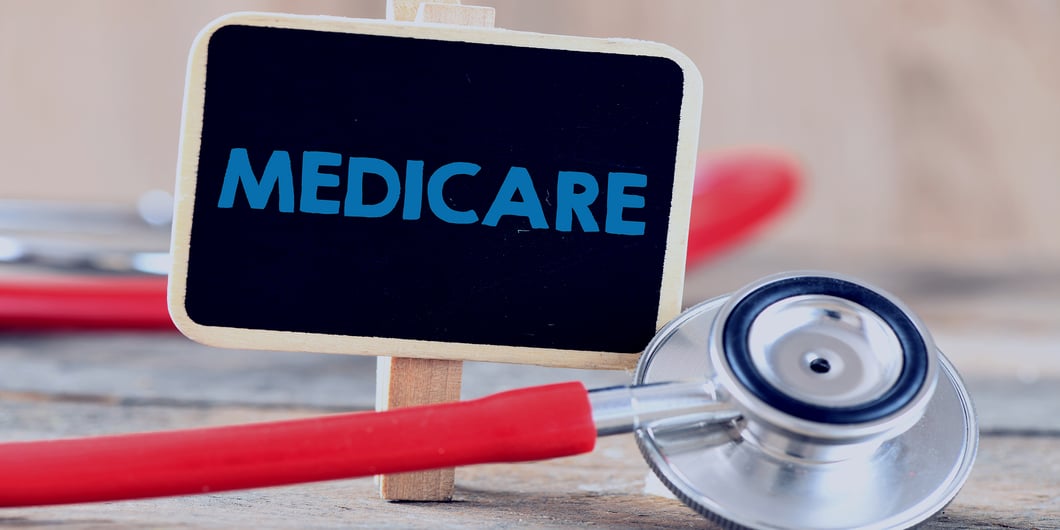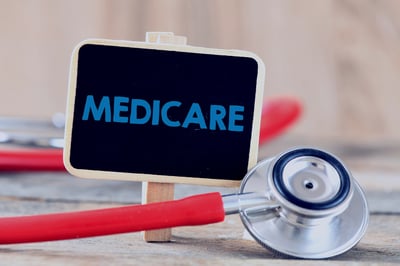4 Must-have Data Points for Dispatch-Billing Alignment and Maximum Reimbursement
5 Critical Medicare Updates Every EMS Agency Should Know
(5 min read) For many years, EMS agencies and advocacy groups like the American Ambulance Associates (AAA) have been battling for adequate reimbursement regarding the provision of ambulance services, both from private payers and federally funded programs
Was this information valuable?

(5 min read) For many years, EMS agencies and advocacy groups like the American Ambulance Associates (AAA) have been battling for adequate reimbursement regarding the provision of ambulance services, both from private payers and federally funded programs.
On January 1, 2020, the Centers for Medicare & Medicaid Services (CMS) launched the Medicare Ground Ambulance Data Collection System, a process to collect information from ground ambulance providers and suppliers on cost, utilization, revenue, and other service characteristics over a continuous 12-month period.
CMS selected the first 25% of program participants in December 2019 and announced the reporting year was 2020. However, the COVID-19 pandemic disrupted those plans.
Medicare experts, Brian Werfel, Esq., Medicare consultant, and Scott Moore, Esq., human resources and operations consultant, recently spoke at the ZOLL Summit Series EMS Billing Event. They updated attendees on the ambulance cost data collection process, discussing five critical Medicare updates that every EMS agency should know.
1. The Ambulance Cost Data Collection Process Has Been Delayed.
CMS announced its first one-year delay of the Ambulance Cost Data Collection process in March 2020 and another delay in December 2020. The first data collection period is currently scheduled to run from January 1, 2022, to December 31, 2022. This period applies to Year 1 and Year 2 participants. These participants must submit cost data within five months of the end of the ambulance service's 12-month reporting year.
However, given the ongoing health emergency regarding the pandemic, Moore said it's unlikely that 2021 will aptly represent typical ambulance data.
He also expects CMS to announce the next 25 percent of participants in December 2021, with the directive to collect data during 2022. He suggested that all ambulance providers should:
- Confirm if they were selected by visiting the Ambulance Services Center.
- Confirm your contact information; CMS has not contacted some selected ambulance providers.
- Use the Amber Cost Collection software, which helps you collect, analyze, and submit your cost data to CMS.

2. The Medicare Ground Ambulance Data Collection Instrument Was Revised.
In July 2020, CMS published a revised version of the Medicare Ground Ambulance Data Collection Instrument. Ambulance providers should read the revision, as it contains additional guidance and clarification on how certain data elements within the Instrument should be completed.
3. Two Reports Have Been Released Regarding ET3
The Emergency Triage, Treat, and Transport (ET3) model, which went live on January 1, 2021, aims to provide greater flexibility to ambulance care teams to address the emergency healthcare needs of Medicare fee-for-service (FFS) beneficiaries following a 911 call. Since then, there have been two reports issued.
Werfel said that the second report simply confirmed the findings in the first report: Prior authorization successfully reduced the utilization of ambulances for ESRD beneficiaries. The model showed nearly a 70 percent reduction in the nine participating states and $171 million in Medicare savings. The report also said there was little quantitative evidence to suggest a negative impact on patient care.
Also, CMS agreed to implement a new series of SNF edits. Conceptually, the recent edits operate by stapling ambulance claims to the associated hospital claim. For example, the ambulance claim is only paid by Part B to the extent the hospital is paid separately for its services. However, Werfel said that the hospital claim must be in the system for this to work correctly.
4. Physician Certification Statements Received Cosmetic Changes
At the start of 2020, there was a change to physician certification statements (PCS). Now there are two forms: a PCS and an NPCS (non-physician certification statement). Physicians continue to sign the PCS, while other authorized non-physician professionals sign the NPCS.
Also, practitioners with the following licensures can now sign the NPCS: licensed practical nurses, case managers, and social workers. If they haven't already, EMS agencies should consider adding these new licensures to their forms.
5. When You Can Send a Medical Record to a Third Party
What do you do when patients ask you to send their medical records directly to a third party, typically an attorney?
At the beginning of 2020, a federal district court struck down several provisions of the HIPAA Privacy Rule related to third-party directives. The court ruled that the requirement to honor third-party directives is limited to PHI maintained electronically. The court also ruled against expanding the requirement to non-electronic PHI and the limits on what you can charge, leaving state law to govern the cost for third-party record requests.
Read More on Medicare and Related topics:
EMS Compliance Lessons from a $10M Medicare Ambulance Fraud Scheme
Related Posts
Podcast: 4 Ways ePCR Software Can Relieve EMS’ Biggest Headaches
Black Book Research Ranks ZOLL Billing the #1 Insurance Discovery Solution
ZOLL Pulse Blog
Subscribe to our blog and receive quality content that makes your job as an EMS & fire, hospital, or AR professional easier.
ZOLL Pulse Blog
Subscribe to our blog and receive quality content that makes your job as an EMS, fire, hospital, or AR professional easier.




